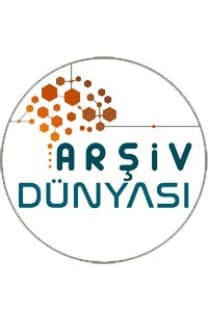Çocuk Kütüphanesinin Psikolojik Teknikleri Kişisel Zorlukları Yönetiyor
Modern kütüphaneler, faydalı bir kurum olarak var olmak için giderek daha fazla hizmet sunmak zorundadır. Bunların arasında psikoloji veya pedagoji ile gelişen özel yöntemler vardır. Hepsinin ortak paydaları vardır: Kişisel zorluklara karşı psikolojik destek. Bibliyoterapi, zihinsel hastalık veya duygusal rahatsızlığı olan hastaların iyileşmesini kolaylaştırmak için tasarlanmış planlı bir okuma programında içerik temelinde seçilen kitapların kullanılmasıdır. Şiir terapisi, dışavurumsal sanat terapisinin bir başka biçimidir; şiirlerin, anlatıların ve iyileşmeyi teşvik etmek için diğer sözlü veya yazılı medyanın terapötik kullanımını içermektedir. Ayrıca, diğer psikolojik biçimleri çocuklara yardım amaçlı kullanmayı düşünebiliriz. Bunlardan biri mentörlüktür. ICF, mentörlüğü, danışanlarıyla kişisel ve profesyonel potansiyellerini en üst düzeye çıkarmak için ilham verici, düşündürücü ve yaratıcı bir süreç olarak tanımlamaktadır. Ayrıca danışmanlık, kütüphanedeki iki kullanıcı grubuna odaklanmaktadır. Bahsedilen tüm tekniklerden farklı olan bir teknik de farkındalıktır. Farkındalık tamamen mevcut olma, bulunduğumuz yerin, ne yaptığımızın farkında olma ve etrafımızda meydana gelen olaylara karşı aşırı tepkili veya kafası karışmış olmama yönündeki temel insan becerisidir. Bu anlatım, çocuk kütüphanecilerinin kullandığı en pratik psikolojik tekniklerin kısa açıklamasını incelemektedir.
Psychological Techniques Of Children’s Library Work With Personal Difficulties
Contemporary libraries have to provide more and more service to exist as a useful institutions. Among them are special methods which growing up with psychology or pedagogy. All of them have common denominators: psychological support with the personal difficulties. Bibliotherapy is the use of books selected on the basis of content in a planned reading program designed to facilitate the recovery of patients suffering from mental illness or emotional disturbance. Poetry therapy is another form of expressive arts therapy, involves the therapeutic use of poems, narratives, and other spoken or written media to promote well-being and healing. Also we can consider using other psychological form of help children. One of them is coaching. The ICF defines coaching as partnering with clients in a thought-provoking and creative process that inspires them to maximize their personal and professional potential. Also counselling is focus on those two groups of clients in the library. Different from all mentioned techniques is mindfulness. Mindfulness is the basic human ability to be fully present, aware of where we are and what we’re doing, and not overly reactive or overwhelmed by what’s going on around us. This speech examines short description of the most practical psychological techniques of children’s librarians.
Keywords:
Psychological techniques, Libraries, Psychotherapy Counselling,
___
- Barker, R. (1987). The social work dictionary. Silver Springs.
- Beach, S. R., 10 Ways to Teach Mindfulness to Kids - Left Brain Buddha http://leftbrainbuddha.com/10-ways-teach-mindfulness-to-kids/ (access: 12.11.2018).
- van den Brink, E, & Kosterwith, F., & Norton, V. (2018). A Practical Guide to Mindfulness-Based Compassionate Living. New York.
- Counselling Directory, Counselling for Children and Young People, https://www.counselling-directory.org.uk/childrelatedissues.html (access: 24.11.2018).
- Howie, M. (1988). Reading therapy and the social worker. In J. Clarke & E. Bostle (Eds.), Reading therapy (pp. 18-20). London: Library Association.
- ICF, The Gold Standard in Coaching, https://coachfederation.org/about (access: 4.11.2018).
- Kruszewski, T. (2007). Arteterapia a literatura. Związki i rozbieżności, Biblioterapeuta, 4, 1-2.
- Kruszewski, T. (2007b). Pomoc psychologiczna w poradnictwie i rehabilitacji, Szkoła Specjalna, 4, 252-259.
- Kruszewski, T. (2006). Biblioterapia w działaniach placówek opiekuńczo-wychowawczych, Toruń: Akapit
- Linley, A. (2008). Average to A: realizing strengths in yourself and others, Coventry: CAPP Press
- Neff, K. D. (2011). Self-compassion, self-esteem, and well-being, Social and Personality Compass, 5/1, 4.
- Pardeck, J., & Pardeck, J. (1993). Bibliotherapy. A clinical approach for helping children, Yverdon: Gordon and Breach Science Publishers.
- Pasca, D. M. (2015). The therapeutic fairytale. A strategic choice for a psychological counselor, Journal of Defense Resources Management, 6, 2, 83-86.
- What is CATHARSIS? Definition of CATHARSIS (Psychology Dictionary), https://psychologydictionary.org/catharsis/ (access: 26.11.2018).
- ISSN: 2147-2599
- Yayın Aralığı: Yılda 2 Sayı
- Başlangıç: 1999
- Yayıncı: Türk Arşivciler Derneği
